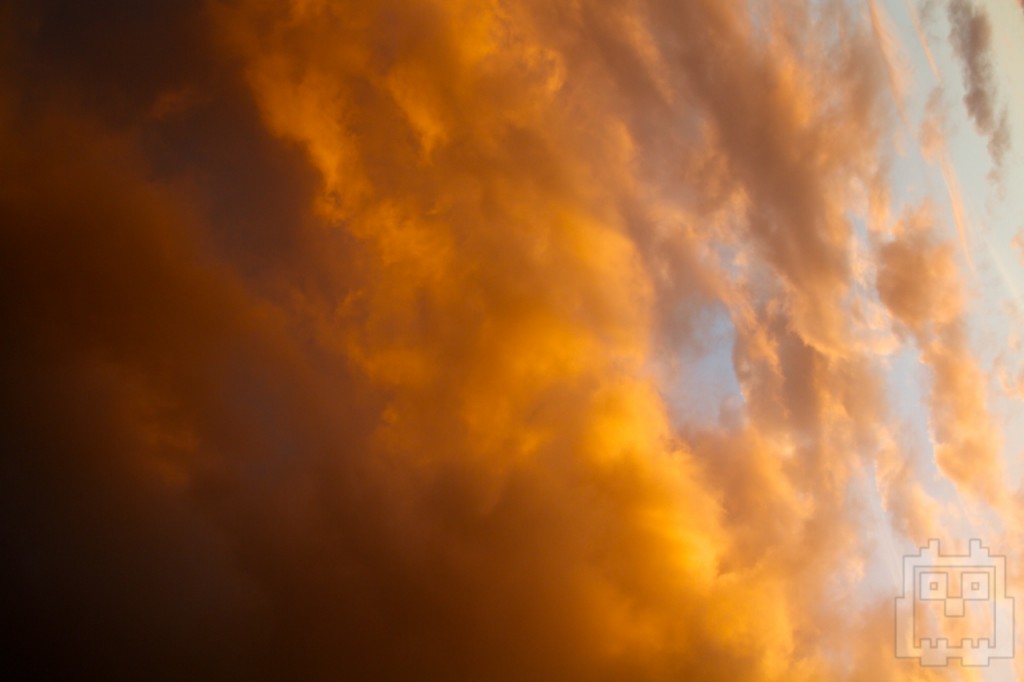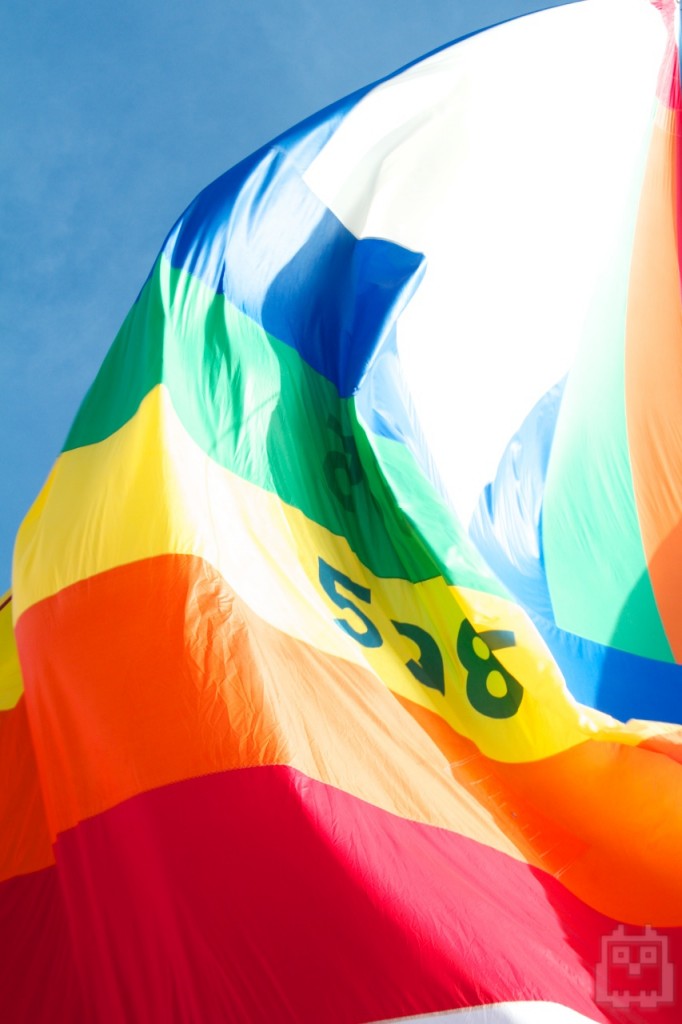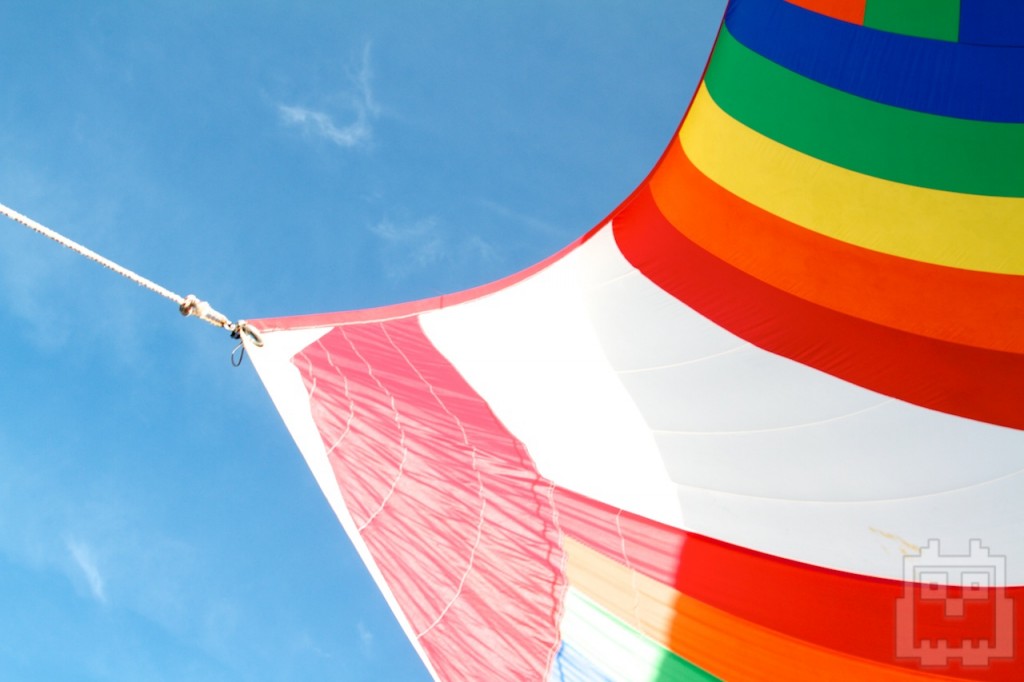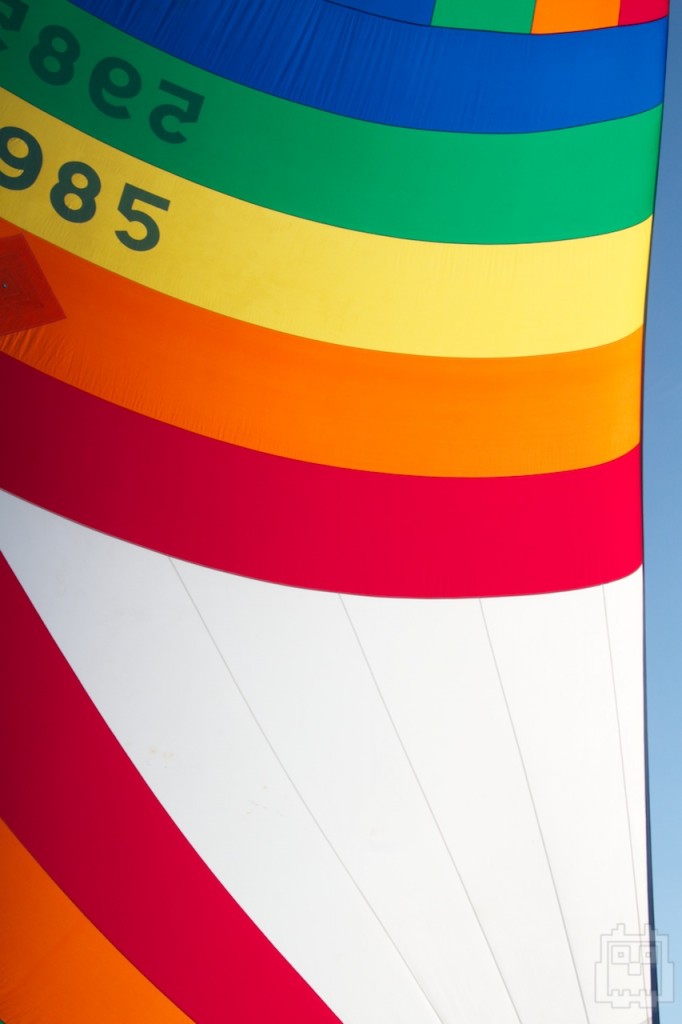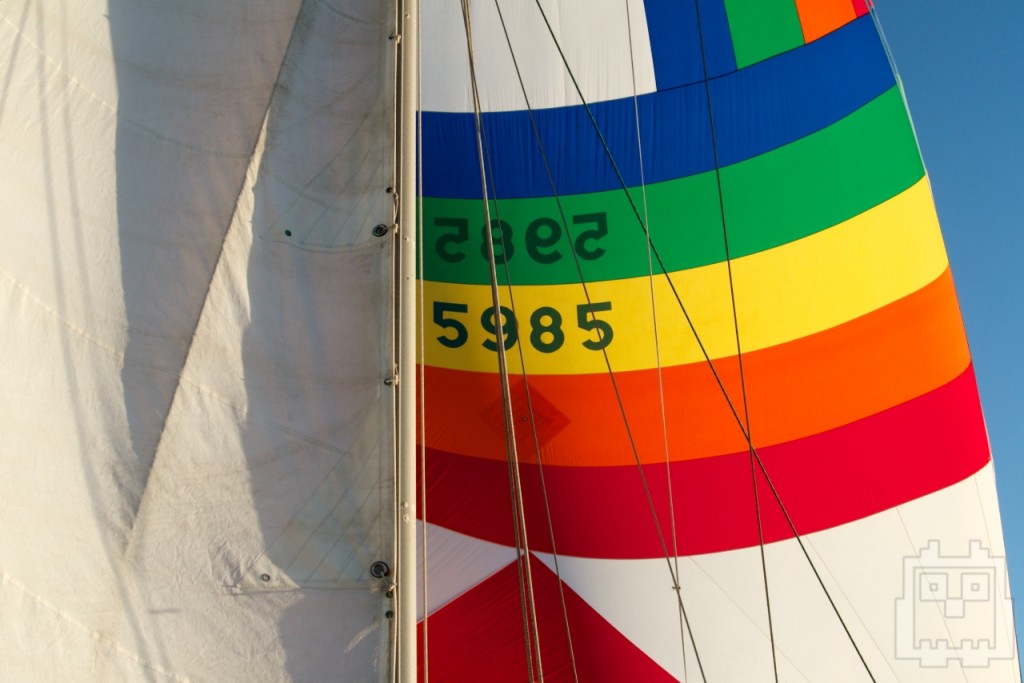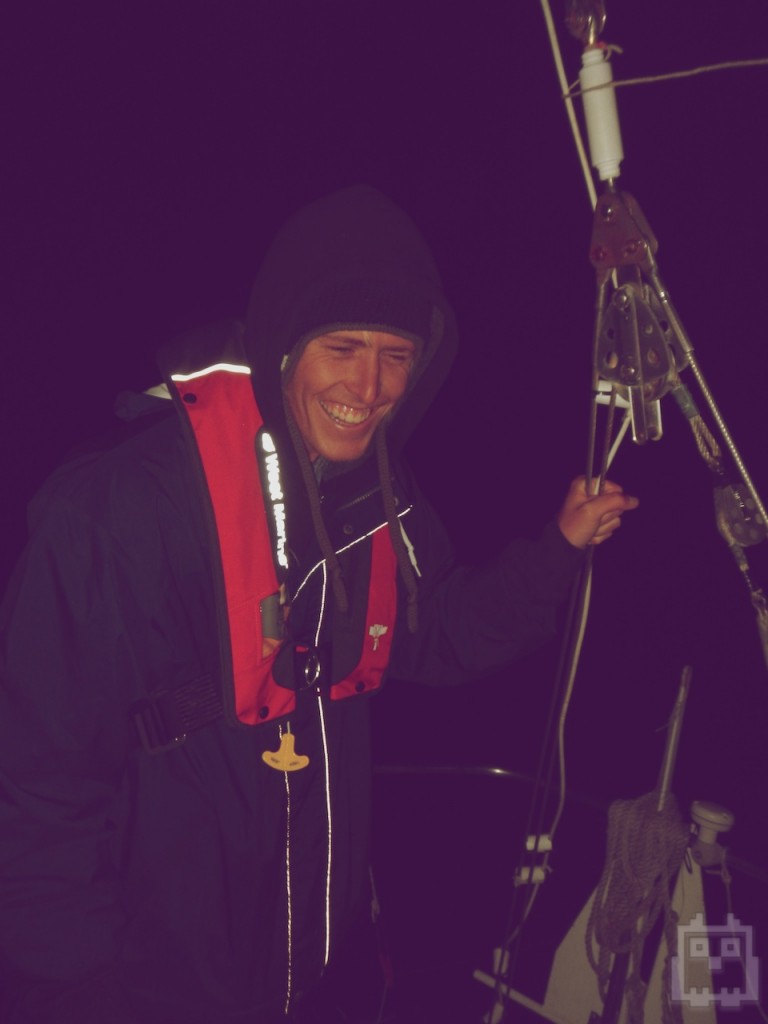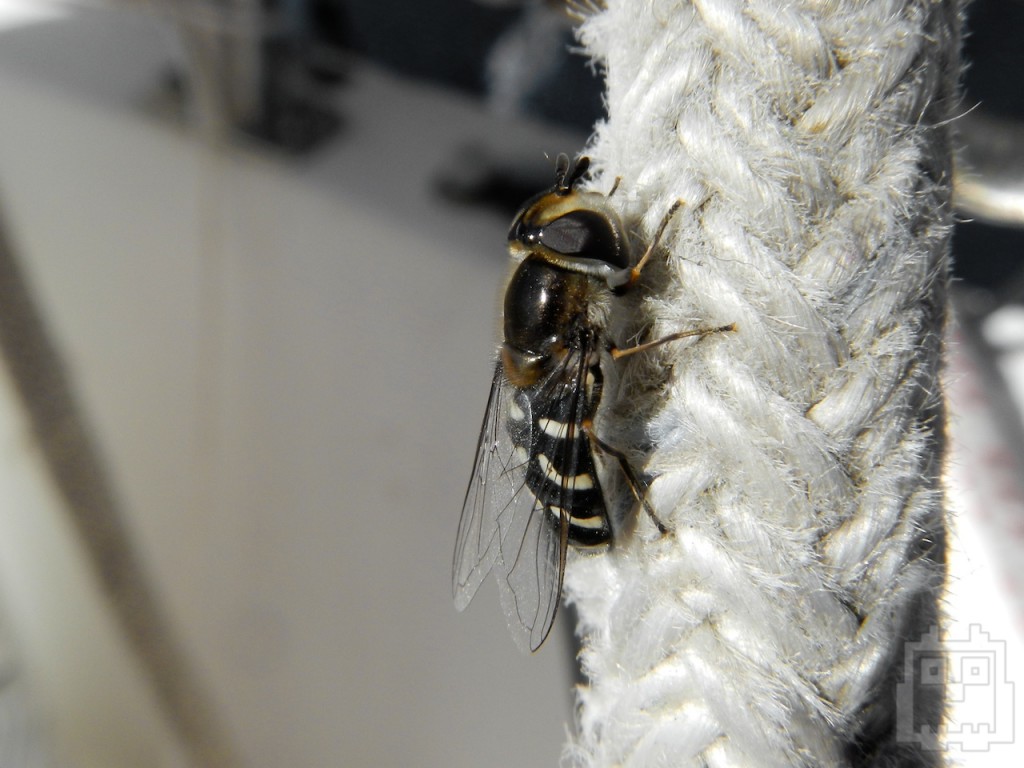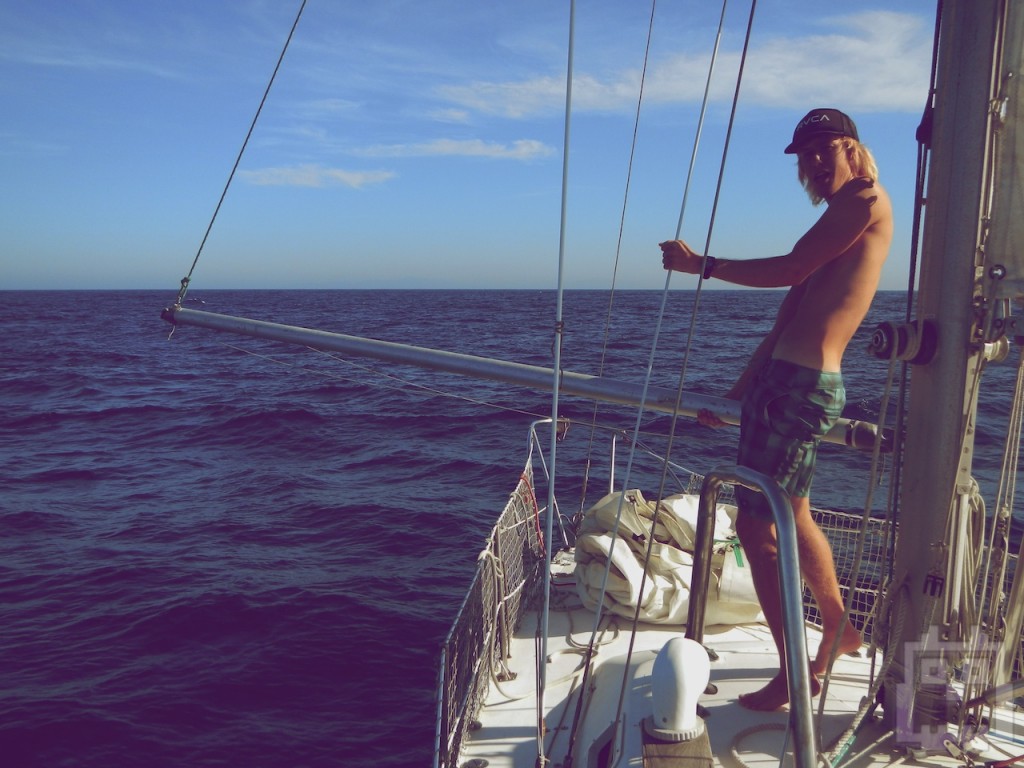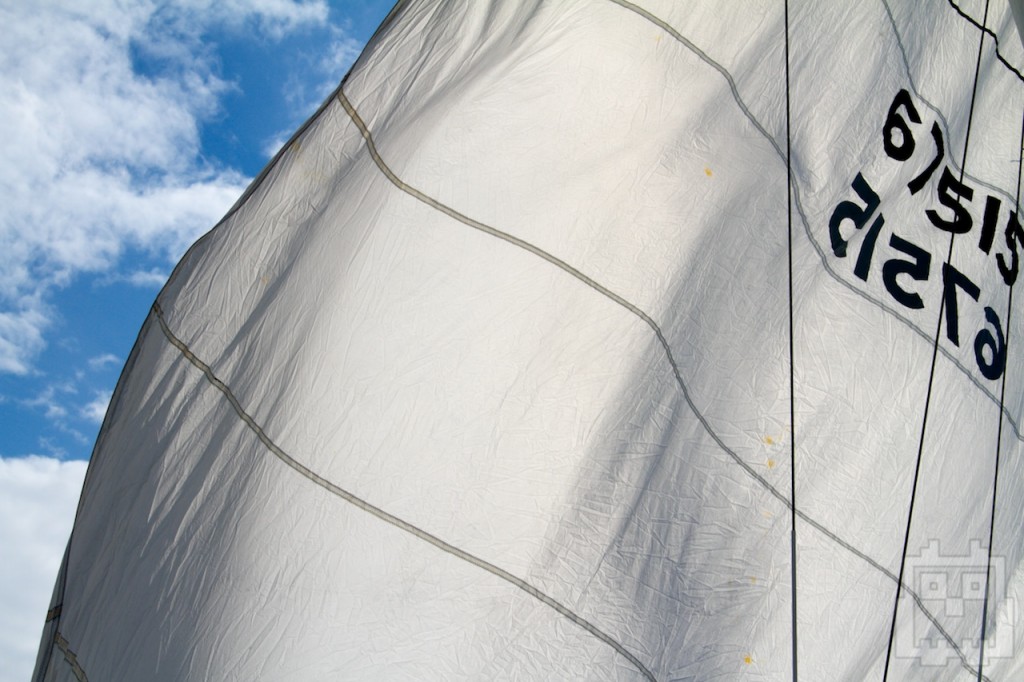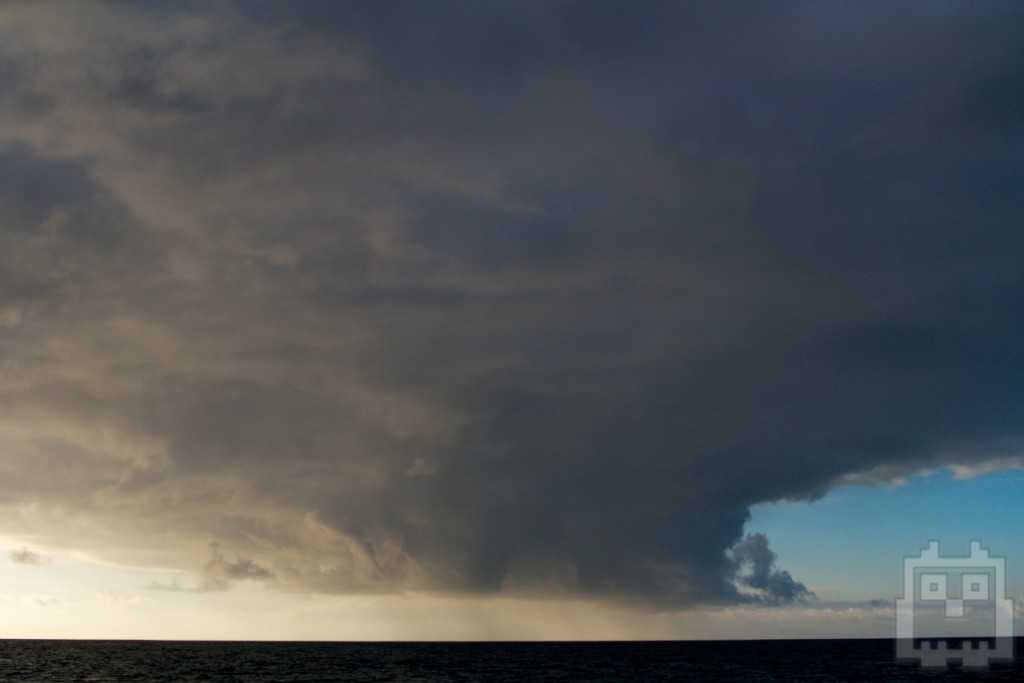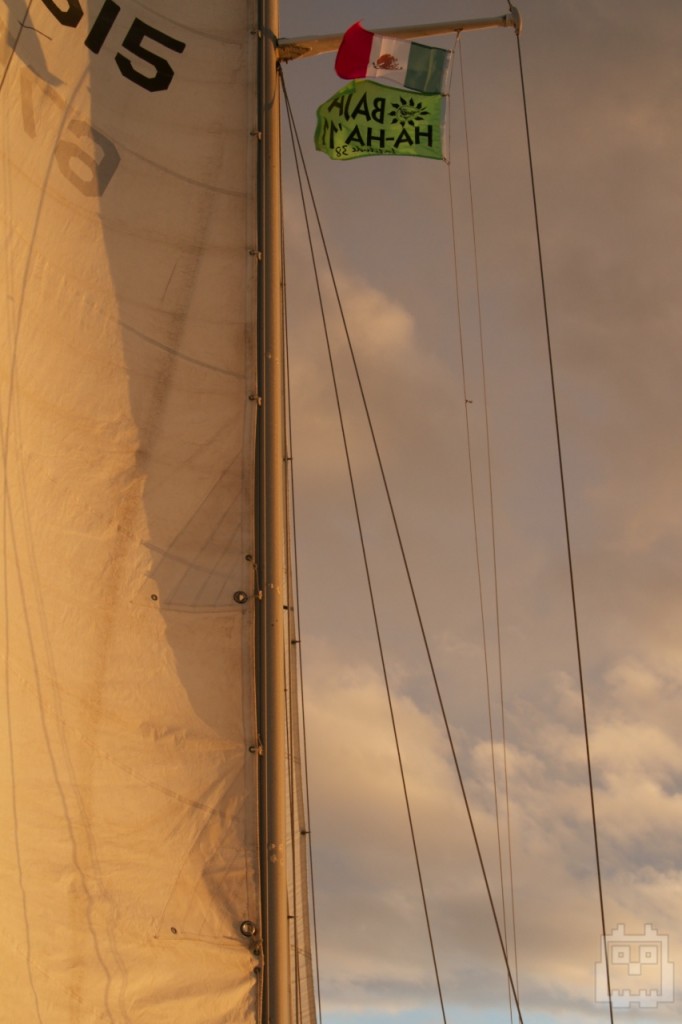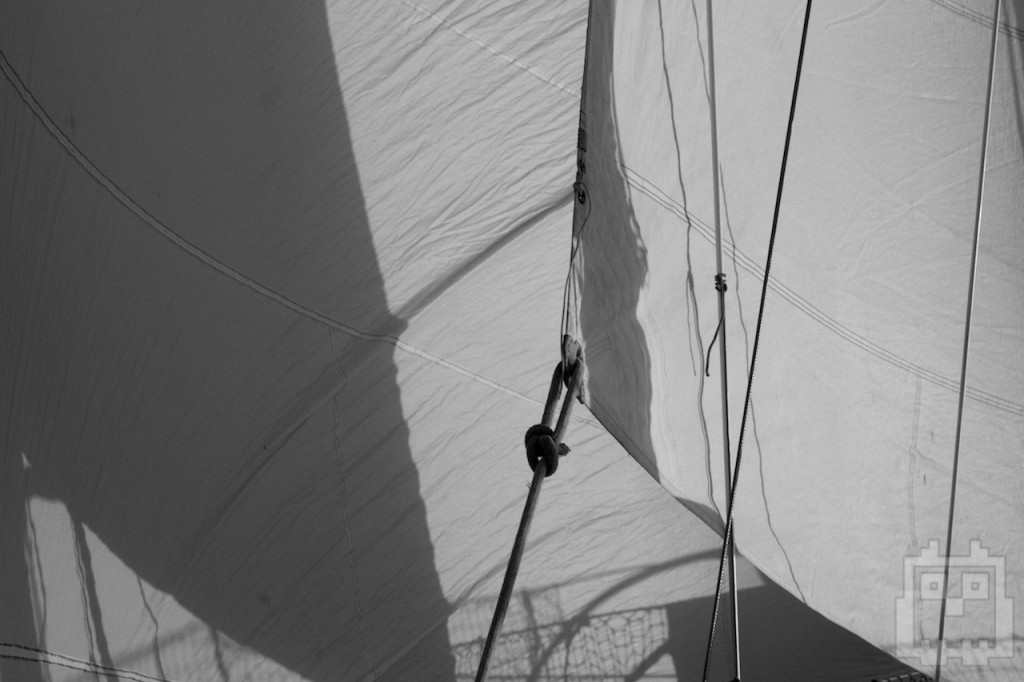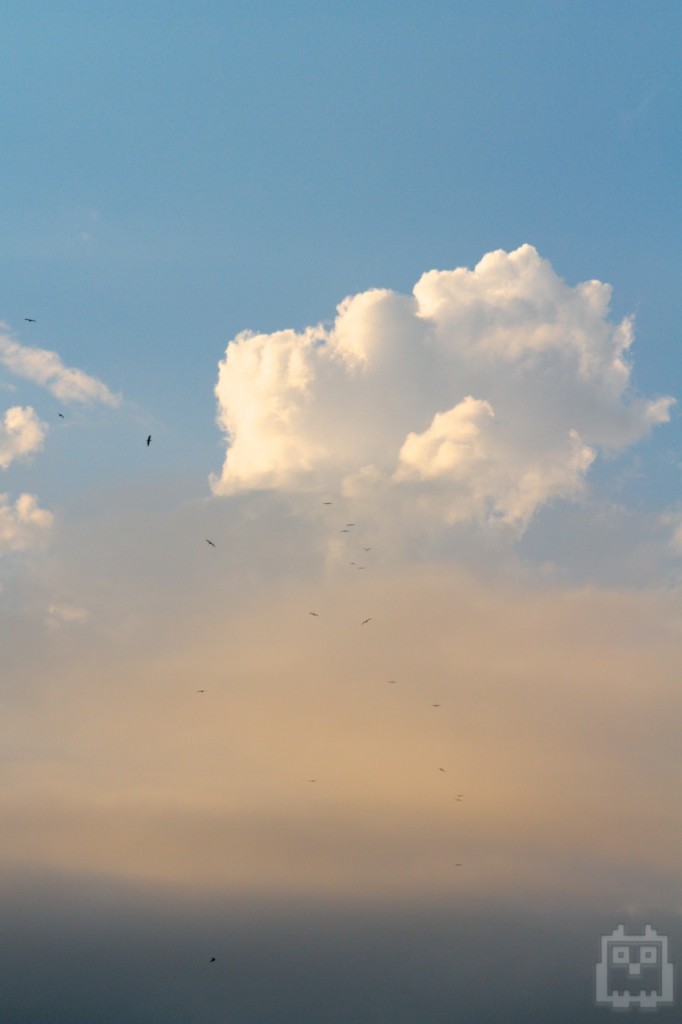
The day before sailing away from our comfortable slip in San Diego, my crew and I ran (literally) around San Diego trying to rustle up all the essentials. After I broke a sweat I really started to regret selling my maroon Trek bicycle. That bicycle was every ounce of transportation for the past year and carried me over 3,000 miles, criss crossing Oakland and San Francisco. Bike math was cycling through my head while I try and pin down a solid internet connection before a skippers meeting for the Baja Ha Ha, a sailing rally down to Cabo. I can only hope to rack the same amount of miles on Panache as I did my beloved Trek. The meeting was self explanatory already, but the organizers supplied a packet of information reiterating all the necessary instructions. All the skippers, almost 170 people, went through the handout line by line and then it was time for questions and answers. I was baffled to find people asked the same questions that were just covered in the handout that was discussed. This felt more like my first day of high school than a skipper meeting for a 750 mile regatta. Skippers are supposed to be alert, right?
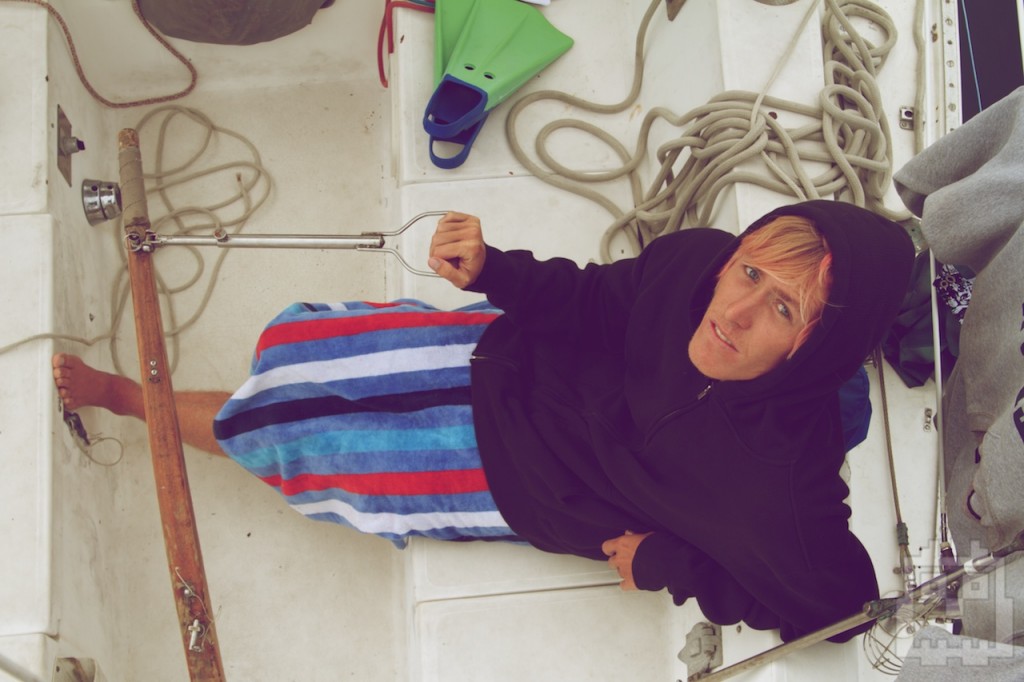
Post meeting, West Marine hosted a costume party/meet and greet for all the cruisers heading south. This put a little extra pressure on our to do list, and our lack of transportation turned out to be our undoing. By the time my crew and I were at the West Marine, we had only satisfying about 30% of our to do list. But we were over getting ready, at least for the moment, right now was time to relax. In order to get little Panache a little more exposure in a sea of big boats, our costumes had to stand out. Solution: cover ourselves with tempera paint and pretend to be devils. This turned out to be very popular and everyone had questions for us and requested pictures with the men in red. Even Richard, the editor of Latitude 38, wanted my photograph. We definitely made a name for ourselves and Panache. Little Panache with the red crew. Some people had difficulty identifying exactly what we were and I joked with them that I was dressed up as a white person who went to Mexico and got a little sunburned. If only we had more time, we would have made picket signs that red, "I beat God in chess," or "Hell is hotter than Mexico, and condos are cheeper." The party was a perfect mix of cruisers (families, couples, and old friends), people trying to find crew, and people who were envious of the eminent trip down south. I even had the pleasure of running into Adam and Cindy (svbravoblogspot.com) from Seattle of all places! They retired a year ago and sailed down to the Sea of Cortez with the intention of eventually making it over to the Pacific Islands. They were in San Diego to visit some family and pick up some scuba diving supplies. Thanks for the tips on getting scuba certified once in the Sea of Cortez!
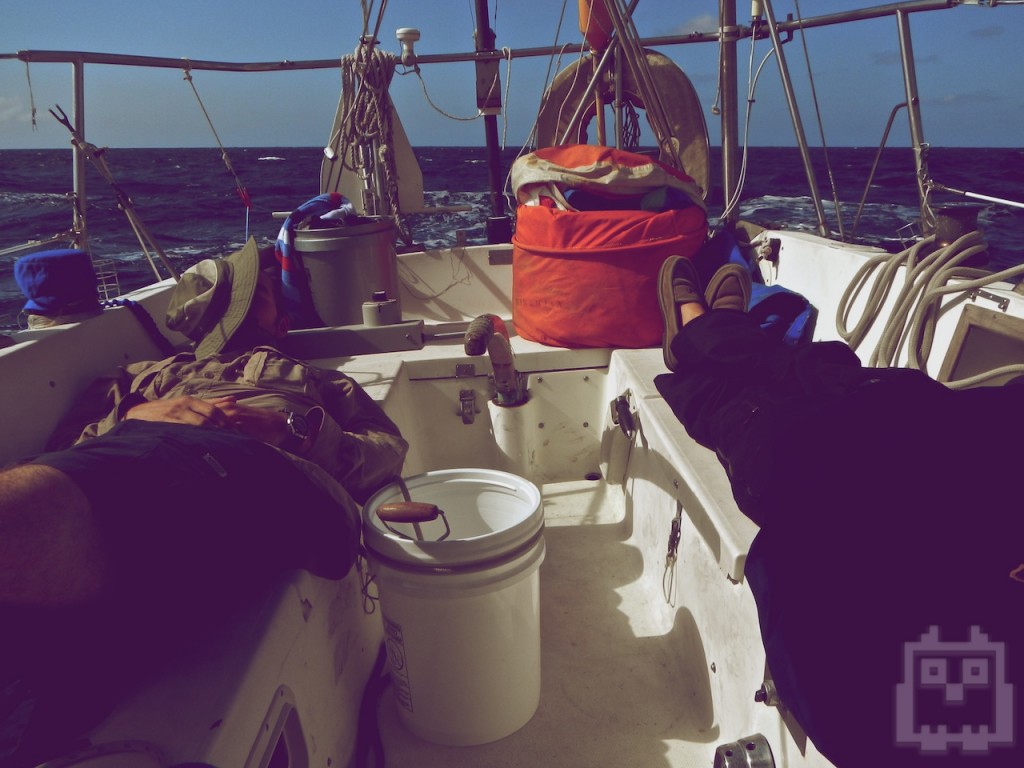
The party ended around 5pm witch gave us just enough time to start knocking off the rest of the to do list for the boat. Panache has decided to try and separate herself from the boom vang, so we lashed it back to the mast. This was a very temporary fix, but It would get us to Cabo. I picked up a new stationary VHF radio that we installed, and some other minor electrical repairs were made. We finished up for the night around 10pm and hopped the fence circling the pool/hot tube of a neighboring hotel to enjoy the luxuries of civilization one more time. This also helped get all the tempura paint off.
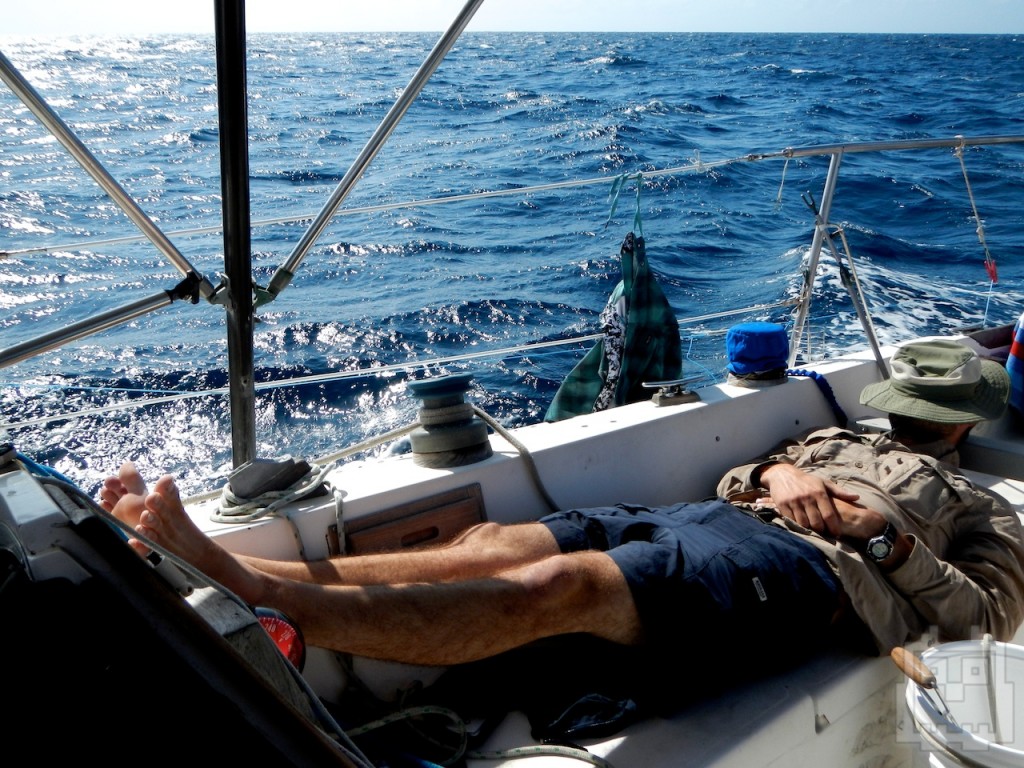
The morning of our departure came way too early, and the scramble to stow everything began. A quick stop at the fuel dock, and we headed for the starting line of the Baja Ha Ha, just right outside of shelter harbor in San Diego. before we could make it out of shelter island harbor, our diesel engine chugged to a halt like someone throttleed the engine down to shut it off. Hmmm. We tried to start it again, with no luck. I can't think of worse timing, right before we head to Mexico, Panache's engine cuts out. But better here than in Mexico. I call into Richard, the organizer of the Baja Ha Ha on the new VHF and tell him Panache will have to depart a little later today because we were having engine trouble. This is not a phone call, everyone in the regatta, 170 something boats are also listening to this. Richard (The Grand Poobah), started asking me questions about what happen, and came to the quick conclusion that there was probably a fuel restriction, and that diesels are bulletproof if they have clean air fuel and oil. Richard adds that its no problem that we are staying back, and that its practically Baja Ha Ha tradition for some boats to make a late start. He leaves us with a wish of good luck and we sail for the police dock for some troubleshooting. I was a little embarrassed but we got some good advice to work with, and shortly after I hung up the VHF another boat chimed in with the same bad news. Panache isn't alone after all.
At the police dock Eric Nate and I opened every engine compartment and stared at the engine block for several minutes like it was an alien space ship. None of use were diesel mechanics. Not knowing sucks, but the good thing about this situation is that we had all the resources to figure it out. All three of us sat around on the cabin floor tearing through the troubleshooting guides of several marine diesel books trying to find our problem. It was a serious crash course. Apparently the way to get a fuel restriction fixed is to move from the fuel tank all the way to the engine and check every filter between the two. Both filters were clean, so it must have been some air bubble that was causing the restriction. we bled the fuel at the ignition point until we saw the air bubble gurgle through. Before trying to start the engine we checked the oil levels. The crankshaft was totally dry, so naturally I filled it to the top. Eric turned on the engine, and it started right up! We all cheered and gave a round of high fives, we were now certified diesel mechanics! However, I must have overfilled the engine because seconds later some of that oil got into the combustion chamber and ignited witch immediately ramped up the engine RPM to 4600! Even throttling down didn't shut the engine off! The oil is like rocket fuel to diesels, and wouldn't allow us to turn it off in the traditional way. I thought the engine was loud before, but this was terrifying! It was so loud and shaky it sounded like it was going to explode. Finally we found the air shutoff valve and the diesel chugged to a halt. We all took a moment to gather ourselves afterwards, but before my confidence was restored we heard a stern voice from outside yell "Whats happening over here! You are pumping oil into the water!" I climb out of the cabin and a police officer is looking at me and then behind Panache. The oil was not only being combusted inside of the cylinder but being spurted out of the exhaust. I was Exxon, I was BP.
I started explaining the situation, being very careful to use Mr. and Sir, but halfway through my explanation he cut me off and asked for Panache's registration. "Yes sir, one moment please." As I went to gather my documents I could hear him calling on the radio for the coast guard to come and make an assessment of the spill. The officers partner came down with a huge stack of absorbent pads used for oil spills and instructed us to start padding the shore so the rocks didn't get covered in oil. My crew and I were on our way to enjoy the beautiful southern ocean, and before any of us could get there, our transportation was destroying it. We moved fast to spread the pads everywhere we could, and the police and coast guard took note; they started talking with us as opposed to at us. Also, the spill wasn't as bad as anyone initially thought, it was less than a minute of oil spurting out of Panache's exhaust before we cut the engine. I wrote a statement for the coast guard and they ended up giving me a warning with clear instructions not to turn on my engine or pump the bilge until I crossed the Mexican American boarder. Yes sir! Too bad the ocean knows no human boundaries.
Eric, Nate and I all looked at each other and then started smiling. "What did you say to those guys to get us out of a ticket," Nate asked. I wasn't really sure. I guess we still can go on the Baja Ha Ha, we are just going to be a little late to our first stop at Turtle bay. We wasted no time to put everything away and cast off the dock lines, this time for good.
The sail out of San Diego Harbor was a slow one. We passed several boats that recognized our Baja Ha Ha flag and pointed the way to Mexico, knowing full well that we missed the start of the rally by six hours. We smiled and waved back and cursed under our breath. If you only knew. The start point of the rally was just outside of the harbor, and we were committed to two things; 1. be the fastest boat in our division of boats, and 2. sail the entire way down to Cabo. Unlike real sailing races, the Baja Ha Ha lets you motor when you want with a small penalty against your final time. Panache would incur no penalty as long as I was captain.
Right after we set Panache on a decent course that would bypass the Coronado Islands to the west, Eric took the initiative to drop all four trolling lines behind the boat. We were several miles from the Mexican boarder and daylight was almost non-existant. With a nonchalant air Eric announced "Fish on." Nate and I scrambled to the stern of the boat and started speculating the species and size. I was sure it was a yellow tail tuna, but as Eric pulled it closer to the boat, it was obviously something else. It almost looked like a slender stick!? It was a shark! Hammerhead? What was it? Eric pulled it besides the boat, and the shark was something juvenile, with a long slashing tail. "I'm bringing it on the boat" Eric announced, and my only reply after a second of reflection was "Ok." Its skin was like sandpaper when moving your hand one way, and silk when moving the other. Sharky had two huge green eyes about the size of golf balls, and a set of small but dagger sharp teeth. Once sharky was in the boat, it thrashed around trying to free itself from the fiberglass prison that was Panache. He must have come up to our fishing lure, curious to see what was making all this noise, and darted off with disinterest because Sharky was hooked (Snagged) on his large floppy tail. We unhooked our toothed friend and Eric manhandled him overboard. The shark turned out to be a juvenile Thresher Shark, easily identified by that silly tail. Not a bad way to start the trip, but a fat tuna would have been nice.
The first night out on the water I dozed off in the v-berth and listening to the parting water make way for Panache. It felt good to make progress dead south. I have been thinking about this moment for years and its finally happening. I have moments of sadness when Karen enters my thoughts. I still wish she was on the trip, but honestly, its hard to dwell on anything when your day is consumed by the nonstop (and many times exhausting) rituals of sailing. Worry is reserved for the weather, for the condition of Panache, and for the safety of my crew. However, Karen was part of this plan, and her image keeps me company day after day.
When the sun decided to give show itself, it gave way to perfection in the form of strong wind. But what day was this exactly? During the 400 something miles of the regattas first leg, days started to melt together. Working a four hour watch schedule, days are doubled by having two large naps as opposed to one full nights sleep. Regardless of what day this perfect day was, the wind builded to a constant 11 knots, and we kept an even heading directly south on a beam reach. Jesus (the wind vane), offered us the flexibility to move about the cabin and deck freely with only the occasional glance at the wind speed and sail trim. For the most part it was a hands free sunny day of sailing.
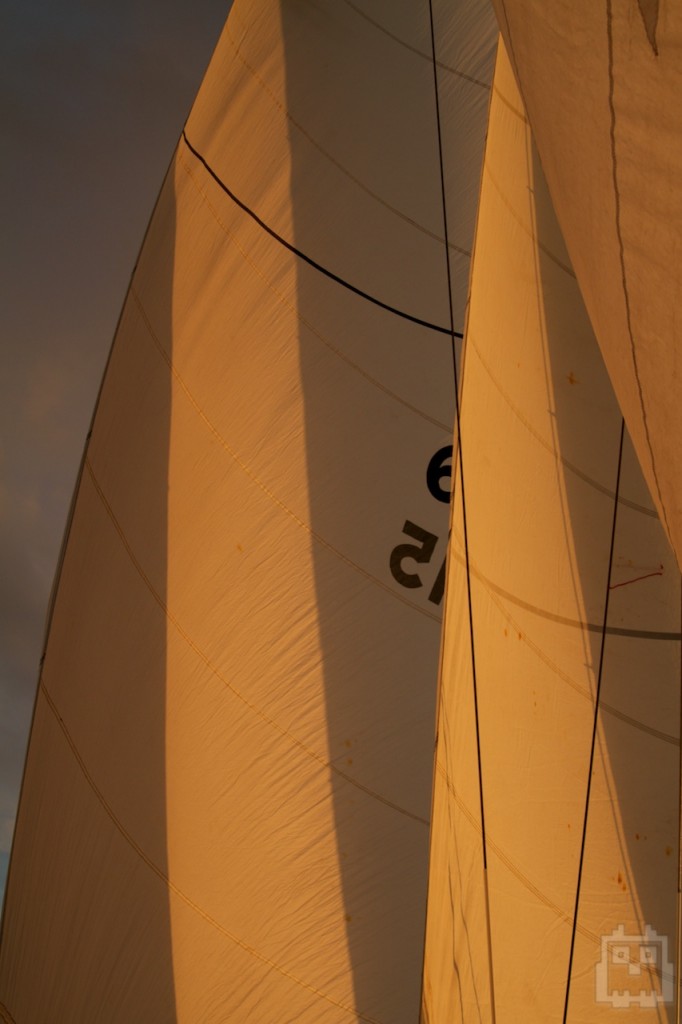
Among the ever growing list of skills I want to master during this trip, learning all there is about the spinnaker is of upmost importance. The spinnaker is a downwind sail that is colorful and beautiful and difficult to manage. With no other knowledge other than what is printed in sail trip books, my crew and I set out about raising a huge rainbow colored spinnaker. Prepping everything took about 15 minutes, but to our surprise, setting minimal effort. the difficult part is ensuring the sail is trimmed appropriately. Held down by three points, like traditional white sails, this almost round sail has much more area, is much lighter making it much more fluid. These attributes make it feel like you are bull ridding rather than sailing. The difficulty of managing the sail definitely paid off, we were making anywhere between 6 and 8 knots! Im in love with the spinnaker right now. Its huge, flashy, extremely useful, and embodies Panache. I even like the color scheme of the sail.
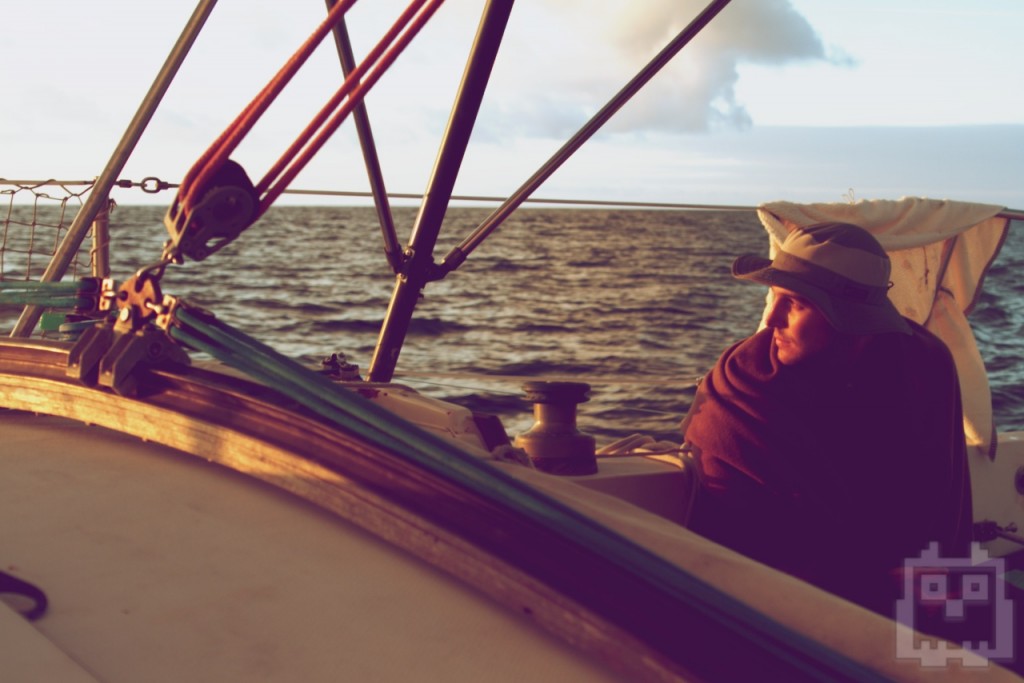
Panache is making her final approach to Turtle bay, and I couldn't be more excited to sit on a white beach and not have to brace myself when I want to walk more than two steps. Its crazy how many muscles you exercise just to keep your body in one position. During the 3 day trip to Turtle bay I did nothing but sit, stand and sleep, but somehow my body feel like I've run a marathon! This first leg of the Baja Ha Ha is the longest, so its literally all downhill from here to Cabo. As long as the wind keeps up it will be a cake walk. Every morning the organizers of the Ha Ha do a roll call over Single Sideband Radio. I have a sweet Icom 707 radio onboard Panache, but I have yet to make the thing work completely. I found that if you jiggle the cables in back of the unit, you can sometimes make the thing receive, and on rare occasions I have successfully made a transmit ion to another radio, but its intermittent. I have come to the conclusion that I am transmuting at a low power witch is reducing my range. I might have just made that up. The first morning out, I was even able to provide my position to the organizers through the SSB, but since then it hasn't been cooperating. I need to get the thing wired correctly, because the few successful transmissions I have made were so satisfying. The radio is an outlet to the rest of the world; to weather forecasts, sending receiving emails, and even making a patch phone call to anyone with the help of another radio operator on land. When I finally drop anchor in Turtle bay I might not be able to check in via SSB, but at that point I can hang out of the cockpit and chat with everyone else in the fleet. Its nice to finally be caught up with everyone.
